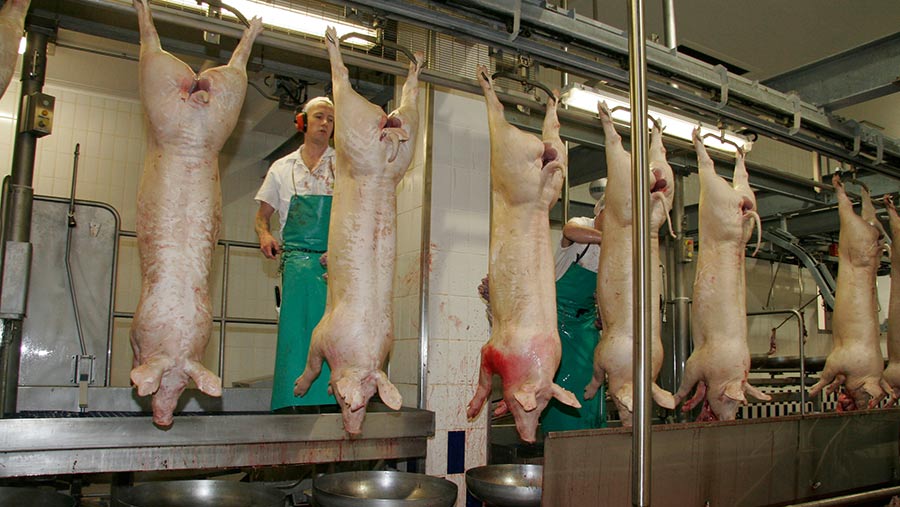Migrant worker visa scheme needed to plug labour gap
 © Tim Scrivener
© Tim Scrivener Pressure is being put on the government to give migrant workers the right to work in the UK for up to a year on a temporary visa, to address a damaging labour shortage in the food and drink sector.
The NFU, Dairy UK and the British Meat Processors Association have added their voices to a series of solutions being sought to avert a major crisis in the food supply chain.
See also: Labour shortage may force cull of healthy pigs, warns NPA
The call for swift action comes after a cross-industry report highlighted an average vacancy rate of 13% in the food and drink sector – the equivalent of more than 500,000 jobs.
The agricultural industry wants the government to introduce a so-called Covid-19 Recovery Visa, covering a 12-month period to address the immediate labour crisis.
This would be a “short-term fix” to allow options for longer-term solutions to be explored and put in place.
The government is also urged to add skilled workers, including butchers and HGV drivers, to the Shortage Occupation List and to expand the Seasonal Workers Scheme for UK horticulture.
Meat sector hard hit
Meat processing is among the sectors worst affected by the labour shortage.
Nick Allen, chief executive of the British Meat Processors Association (BMPA), said the post-Brexit immigration rules had shut off access to overseas workers with specific skills and experience, plunging the meat industry into a “full-blown labour crisis”.
“Their (the government’s) solution is simply to tell businesses to get on with hiring British workers, then stand back,” said Mr Allen. “But it’s not that simple, at least not in the short term.”
The BMPA believes that, over time, the food and drink sector will adjust to the “new normal” that Brexit and the pandemic have created.
But the UK’s food security relies on a “pragmatic view” on allowing migrant workers to fill the current labour shortfall, it adds.
Pig market analyst, Peter Crichton, also points to the “collateral effects” of the current situation across the whole sector “with a shortage of qualified vets, lorry drivers, rendering space and available cold store space, to name a few”.
Exodus
Since the start of the pandemic, 1.3 million foreign-born workers have left the UK and are yet to return.
Farm businesses are under pressure from the subsequent labour gaps, with some horticulture farms experiencing a 34% shortfall in recruitment, despite a drive to recruit staff from the UK labour pool and wage increases.
NFU vice-president Tom Bradshaw believes the ending of the furlough job retention scheme will do little to boost worker numbers as many furloughed workers live in towns and cities that are distant from agri-food jobs.
“A short-term Covid Recovery Visa, alongside a permanent Seasonal Workers Scheme, would be an effective and frankly vital route to help the pressing needs of the industry today,” Mr Bradshaw insisted.
“It would also give us time to invest in the skills and recruitment of our domestic workforce, helping to provide long-term stability so we can recruit the people we need to continue to deliver quality, nutritious and affordable food for the nation.”
The report, produced by accounting and consultancy group Grant Thornton, also calls on the Migration Advisory Committee to review the impact that ending free movement has had on the food and farming sector.
Food now going to waste
In Scotland, a farmer-owned co-operative has been unable to market four million heads of cauliflower and broccoli, and is warning of further losses this week.
Cupar-based East Of Scotland Growers said labour and haulage issues together with processing availability were to blame for its inability to market an oversupply resulting from a delayed harvest.
Weather challenges earlier in the season had resulted in six weeks’ worth of crop, with a typical shelf life of five to seven days, ripening over two weeks, said managing director Andrew Faichney.
“What this period did highlight was the shortage of labour on a day-to-day basis and the complete inability to call on any additional resources if and when required.”
It had also emphasised an issue with the quality and skills of the workforce, he added.
